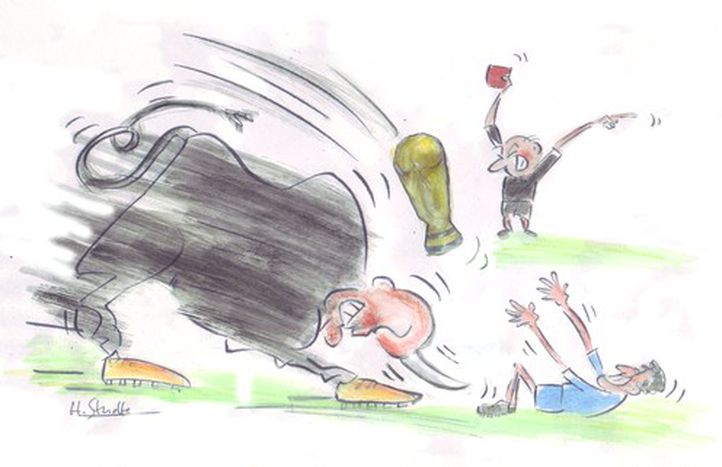
Zidanean gods and heroes
Published on
Translation by:
Francesca ReinhardtFootball is well known to be the younger brother of classic literature, complete with all-mighty gods, bloody battles, and fallen heroes. One need only think of the last world cup final, when the god of football Zinedine Zidane head-butted the churlish Italian defender Marco Materazzi with the grace of a dying steer, abruptly ending his career right before its pinnacle
The scenario appears thoroughly gothic, rather Kafkaesque. Recall Kafka’s story of the harmless clerk transformed into a cockroach in The Metamorphosis; so why not a French midfielder into a Spanish fighting bull?
In this case, the French prefer to speak of a problème cornelien. The poet Pierre Corneille was something of a specialist in tragic conflicts. In Le Cid, the young hero Don Rodrigue duels with Comte Gormas, killing the father of his beloved Chimène, but then asks her to marry him. Zidane's dilemma was in aiming for a world cup title or defending his family’s honour. After all, his crafty opponent, Materazzi, had cast sexual aspersions on his sister. Or was it his mother? Wife? Same difference.
The footballing nations of Spain and Italy have their own writers to draw on when describing the tragic conflicts arising around the spinning leather sphere. The Spanish have Don Quixote and his valiant struggle with windmills. For them, their doubtful attempt to win the world cup is undoubtedly quixotic. On the other hand, should the Italians stop to consider their liga’s litany of sins, they might well be reminded of Dante’s circles of hell in The Divine Comedy. For them, the greasy pole to success is dantesco!
Translated from Götter und Helden



